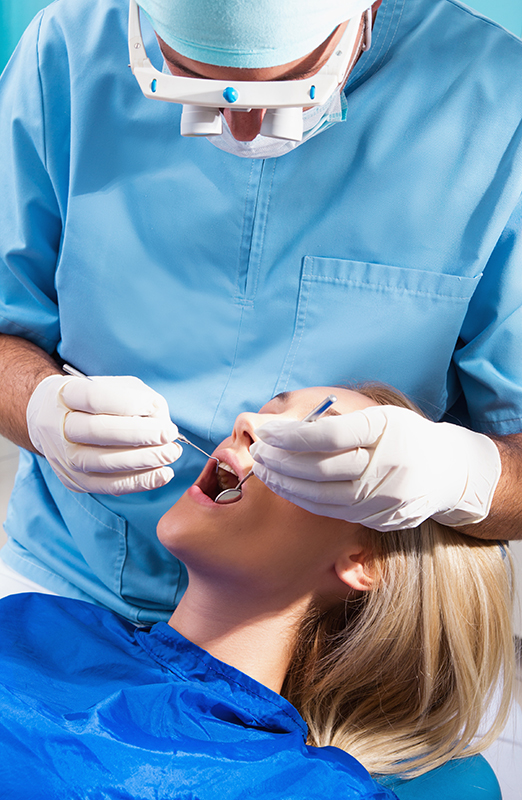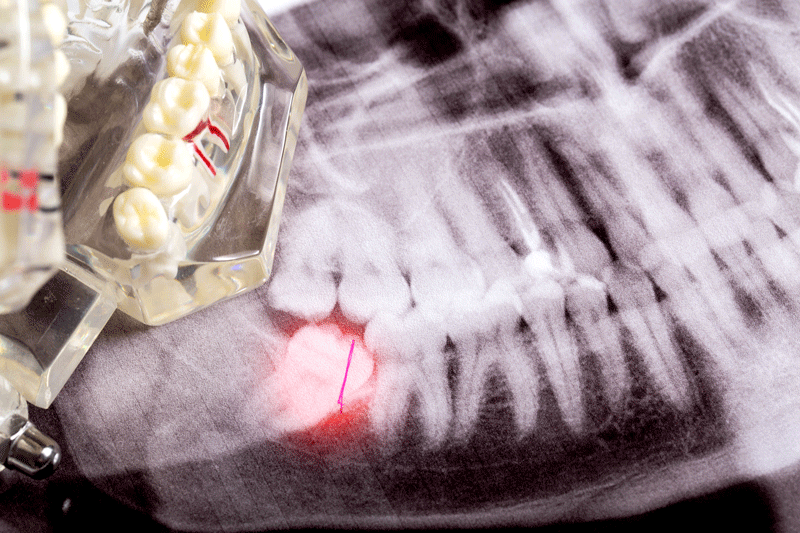Dental Blog - Las Vegas & Henderson, NV
Dental Blog

Should You Sleep At An Angle To Recover From Oral Surgery?

Recovering from oral surgery can feel uncomfortable. You may be wondering about the best ways to speed up your healing process and get back to your daily routine. One commonly overlooked aspect of recovery is sleep. It’s not just about getting enough rest, but also how you position yourself while sleeping. Should you sleep at an angle to recover from oral surgery? In this blog, we’ll explore this question, providing valuable insights and tips to ensure you’re resting properly after your procedure. At Nevada Oral & Facial Surgery, we want to make sure your recovery goes as smoothly and comfortably as possible.
The Importance of Sleep in Recovery
Sleep plays a crucial role in the body’s healing process. Whether you’ve undergone a simple tooth extraction or more complex oral surgery, your body needs time to repair itself. Sleep allows your tissues to regenerate, reduces inflammation, and helps to manage pain. For individuals recovering from oral surgery, optimizing your sleep posture can significantly impact how quickly and comfortably you heal.
Why Elevation Matters
One of the key recommendations for sleeping after oral surgery is to elevate your head. Elevation helps reduce swelling by promoting blood flow away from the surgical site. This can be particularly beneficial during the first night after oral surgery, as swelling tends to peak during this time. By maintaining an elevated position, you’ll likely experience less discomfort and a faster reduction in swelling.
How to Sleep After Oral Surgery
Finding the right sleeping position after oral surgery is essential. Many experts suggest sleeping in a reclined position, either using extra pillows to prop yourself up or resting in a reclining chair. This helps keep your head elevated above your heart, minimizing swelling and bleeding. Ensuring your head is positioned at the correct angle can significantly impact your recovery.
Tips for the First Night Sleeping After Oral Surgery
The first night can often be the most challenging. Here are some tips to make it a little easier:
- Use a wedge pillow or stack two to three regular pillows to achieve the proper angle.
- Avoid sleeping on your side as this can cause pressure on the surgical site and increase swelling.
- Consider wearing a neck pillow to provide additional support and prevent unnecessary movement during the night.
Managing Pain for Better Sleep
Pain management is vital in ensuring you get the restful sleep your body needs to recover. Follow your surgeon’s instructions on pain medication, and consider taking a dose shortly before bedtime. This can help you fall asleep more easily and stay asleep longer, reducing interruptions throughout the night and ensuring a more restorative sleep.
Keeping the Surgical Site Clean
Maintaining oral hygiene is critical after any oral surgery to prevent infection and promote healing. Before heading to bed, gently rinse your mouth with an antimicrobial mouthwash or a saltwater solution as recommended by your surgeon. This will help keep the surgical site clean and reduce the risk of complications.
Creating a Comfortable Sleep Environment
A conducive sleep environment can enhance your sleep quality. Ensure your bedroom is dark, quiet, and at a comfortable temperature. Using a white noise machine or earplugs can minimize disturbances, allowing you to sleep peacefully through the night.
Positioning Yourself During the Day
While sleep is essential, pay attention to your resting position throughout the day. Whenever you lie down, try to maintain the same elevated position to continually reduce swelling and discomfort. This consistent approach will aid in a smoother recovery.
Knowing What to Avoid
Certain habits can hinder your recovery and disrupt your sleep. Avoid smoking, drinking alcohol, and engaging in strenuous activities during your recovery period. These can all interfere with the healing process and prolong recovery time.
Setting Realistic Expectations
Remember that recovery takes time, and patience is key. While the initial discomfort and swelling will gradually decrease, it’s important to follow your surgeon’s guidelines and allow your body the time it needs to heal fully. Consistent care and proper sleep positioning will contribute to a quicker and more comfortable recovery.
When to Contact Your Surgeon
If you experience severe pain, swelling that doesn’t subside, or any signs of infection, it’s crucial to reach out to your surgeon promptly. They can provide additional guidance and ensure that your recovery is on track.
Contact Us Today
Sleeping at an angle is a highly recommended strategy to aid in recovery after oral surgery. By elevating your head and maintaining the right sleep position, you can minimize swelling, manage pain, and promote faster healing. At Nevada Oral & Facial Surgery in Henderson and Las Vegas, NV, we are committed to supporting our patients throughout their recovery. For personalized advice and care, feel free to reach out to our experienced team.




